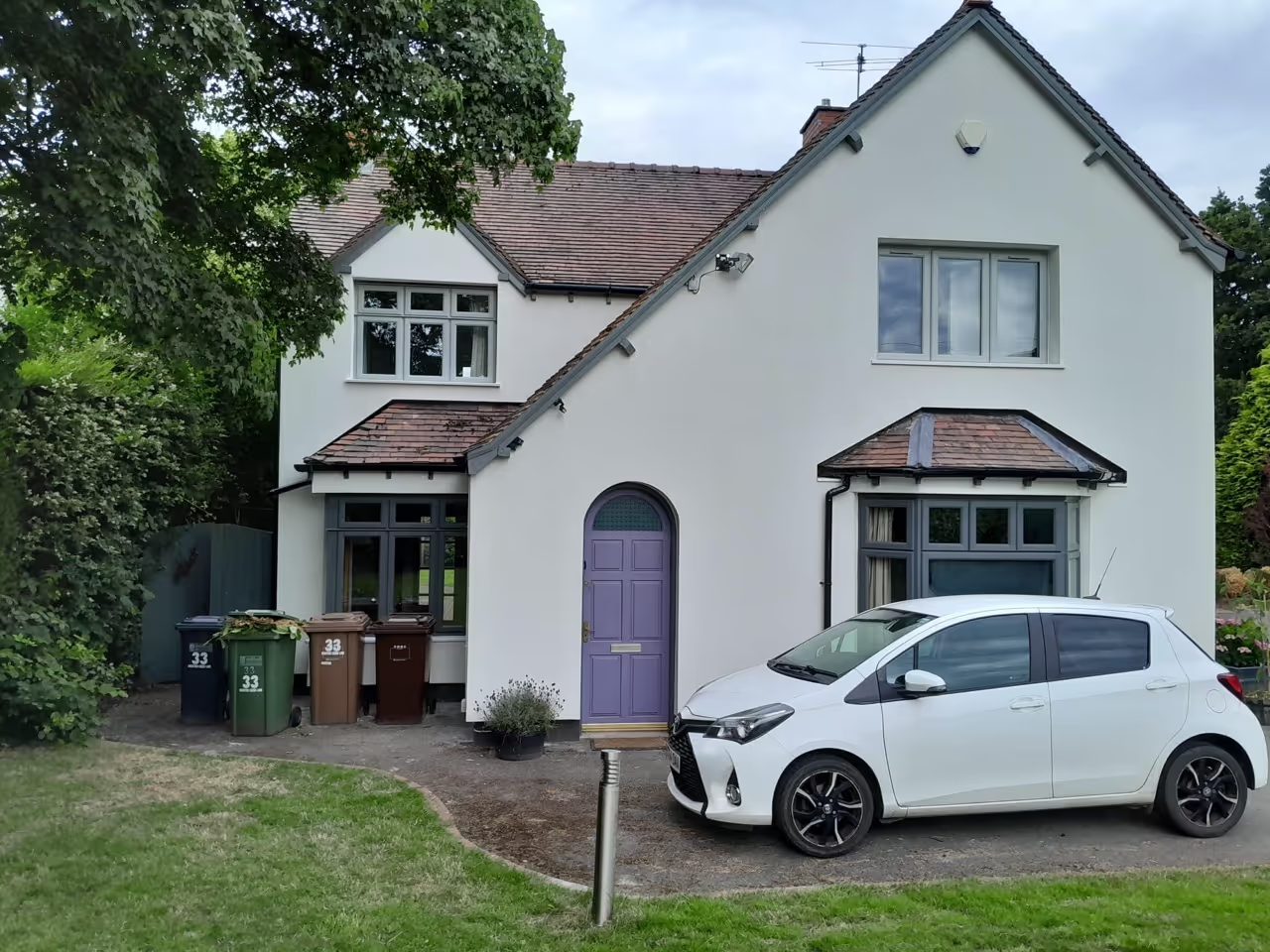
External Wall Insulation (EWI) is widely recognised in the UK as a highly effective method for enhancing a property's energy efficiency and comfort. As more homeowners and businesses strive to reduce energy costs while ensuring a comfortable indoor environment, the popularity of EWI has continued to grow. However, many properties remain uninsulated, leaving them susceptible to a variety of potential problems. So, Why Insulating Your Property Matters?: Key Risks Explained. In this blog, we’ll delve into the far-reaching consequences, from significantly increased energy bills to a home environment that becomes less comfortable and more prone to issues like drafts and mould.

When a property lacks proper wall insulation, it becomes vulnerable to a range of issues that can significantly affect its efficiency and comfort. Below are some of the key risks and consequences associated with an uninsulated home:
Reduced Energy Efficiency and Higher Energy Bills: Wall insulation acts as a thermal barrier, and without it, heat escapes easily during winter and enters during summer. This results in higher energy bills and greater energy consumption as heating and cooling systems have to work harder to maintain a comfortable indoor temperature.
Increased CO2 Emissions: Homes without proper wall insulation use more energy for heating and cooling, consequently leading to higher CO2 emissions. Improving energy efficiency in buildings is crucial for reducing these emissions, making insulation a key component in the fight against climate change.
Uneven Temperatures and Drafts: A lack of insulation within the walls of a property allows outdoor air to infiltrate, causing drafts and uneven temperatures. In winter, warm air escapes, making your home feel cold and uncomfortable. In summer, heat penetrates, making it difficult to cool the interior.
Condensation and Mould: Wall insulation helps regulate indoor temperatures and prevents moisture buildup. Without it, condensation can form on walls and other surfaces, leading to mould growth and unhealthy living conditions.
Weakened Structural Integrity: Walls without insulation are at a greater risk of damage over time. Moisture can penetrate the walls, freeze, and expand, leading to cracks and a weakening of the overall structure.
Increased Noise Pollution: Uninsulated walls allow more noise to penetrate your home, reducing comfort and potentially affecting your well-being. Insulation acts as a sound barrier, helping to absorb and block external noise. Noise pollution can disrupt sleep, reduce productivity, and even contribute to health issues like stress, high blood pressure, and heart disease.
Decreased Property Value: Homes with poor insulation are usually less appealing to buyers and often have a lower market value.
After highlighting the consequences of leaving your property uninsulated, the next logical step is to consider how to tackle these issues. While each property is unique, there are multiple insulation options available to suit different structures and needs.
If you are experiencing any of the issues mentioned above—such as rising energy bills, uncomfortable temperatures, or mould problems—it’s crucial to act now and prevent further damage. The right insulation system can not only address these issues but also provide long-term savings and peace of mind.
External Wall Insulation (EWI): A highly effective method for improving energy efficiency, EWI involves adding a layer of insulation to the exterior of your property, which is then finished with a protective render. It creates an insulating envelope around your property, significantly reducing the transfer of heat through your walls. While the initial cost of insulation might seem high, it is a cost-effective way to reduce energy bills and improve comfort over time.
Internal Wall Insulation: Ideal for properties where external changes are not possible. This method involves adding insulation to the inside walls. The installation process can be disruptive, requiring the removal and reattachment of fixtures, and it reduces the size of your rooms.
Cavity Wall Insulation: Suitable for properties with cavity walls, this involves filling the gap between the two layers of walls with insulating material.


EWI stands out as one of the most efficient ways to protect your home and increase energy efficiency. It offers long-term solutions to common insulation problems and is especially suitable for properties with solid walls, typically older homes. However, it can also be applied to a range of other building types where external insulation is needed.
Key Benefits of EWI
In most cases, installing EWI doesn't require planning permission. However, if the installation significantly alters the external appearance of your home, you may need approval, especially if your property is in a conservation area, is a listed building, or falls within an Area of Outstanding Natural Beauty. It’s always best to check with your local planning authority to ensure your home improvements comply with local regulations and aesthetic standards.

Investing in insulation offers a great opportunity to enhance your home's comfort, energy efficiency, and overall value. When considering the best insulation option for your property, it's essential to take factors like installation costs and your budget, environmental impact, and professional expertise into account.
While EWI significantly boosts a building’s energy efficiency, it's important to remember that other factors such as heating system performance, renewable energy integration, and the quality of windows and doors also play essential roles in overall energy savings. External Wall Insulation is, therefore, just one part of a comprehensive strategy to enhance both the functionality and aesthetic appeal of your home. By making thoughtful choices about insulation and other home improvements, you’ll be well on your way to creating a more sustainable, cost-effective, and comfortable living environment for years to come.

For expert advice tailored to your home's specific needs, PD Rendering is here to assist. With over 15 years of experience in professional rendering and insulation services, we ensure your property receives the best care.

